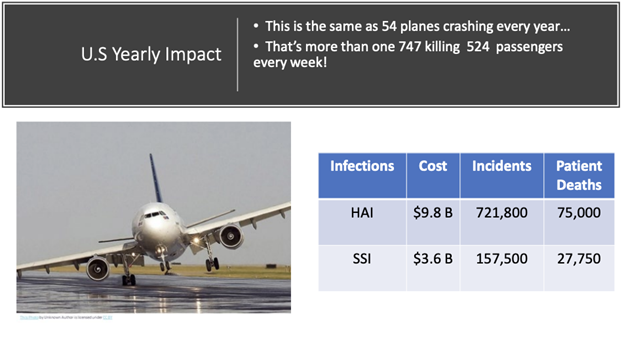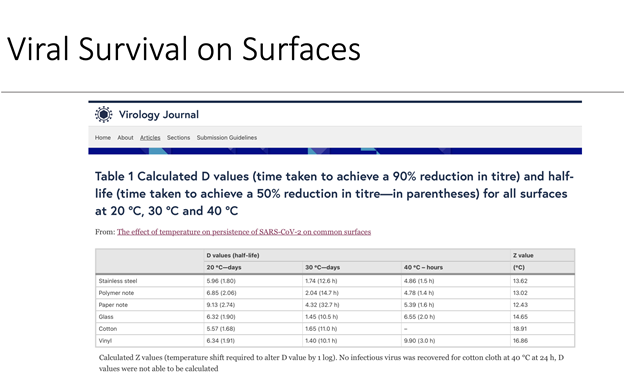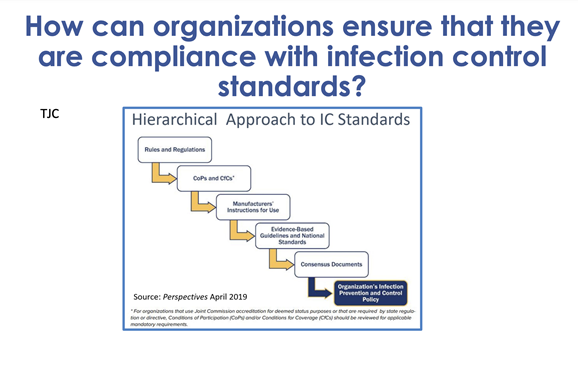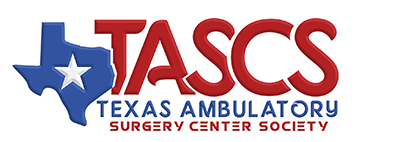April 26 to April 30, the Texas Ambulatory Surgery Center Society hosted Infection Control Week. This virtual conference brought together industry experts, discussing the initiatives, expectations and future of infection prevention in ambulatory surgery centers.
On Monday, Lisa McKown, the manager of research and development for Beyond Clean, spoke about public health initiatives to reduce healthcare-associated infections and offered helpful ways the community can get involved to prevent HAIs.
According to McKown, one in 25 patients will acquire an HAI, and the annual impact rate of HAIs in general costs 9.8 billion dollars and leads to 75,000 patient deaths a year. “It really is a national systemic issue,” McKown said.

McKown explained several national and state initiatives to prevent HAIs. Notably, the working groups of the federal Steering Committee have a task force that outlines a national action plan to eliminate HAIs.
Most critical, though, she talked about what healthcare workers can do at the individual level to help prevent HAIs. Things like washing hands frequently, decontaminating equipment and wearing personal protective equipment correctly are all ways to reduce HAIs but also steps that can be easily missed. “We’ve had a year to kind of rebuild some of these practices, and I’m hopeful that that will spur us in a general sense in being more aware going forward,” she said.
Tuesday entailed a presentation over contagious surfaces by Katie Velasquez, a research biologist for Xenex Disinfection Services.
At the beginning of COVID, people expressed an overabundance of caution because of a lack of evidence on how the virus spread, Velasquez explained. Over time, though, we learned the virus spread through airborne and droplet transmission.
However, this isn’t exactly true for the hospital environment, she added, because of the high volume of sick and immunocompromised patients. Velasquez showed a table to better understand the virus’s life on surfaces with different heat signatures.

Studies have shown 50% of surfaces are missed during the cleaning process in medical facilities, which only exacerbates the spread of the virus. This is further seen through the Prior Room Occupancy Risk that Valsquez explained through the specific example of Methicillin-Resistant Staphylococcus Aureus (MRSA), a highly contagious staph infection. The study showed that patients who went into the same room an MRSA patient had been in after it was cleaned still had a 40% increased risk of contracting MRSA. Like this infection, COVID is also highly contagious, as the infection dose is very low.
Valesquez pointed toward three specific practices to help prevent the spread of viruses and infections like COVID and MRSA: antimicrobial stewardship, which entails preventing healthy patients from contracting anything; handwashing to prevent transferring anything yourself; and isolation to ensure sick people don’t transfer their infections to others. She also suggested another solution — a product her company made called a Lightstrike Robot, which uses LED UV technology to kill live bacteria on surfaces.
On Wednesday, Sylvia Garcia-Houchins, the infection prevention and control director from The Joint Commission, and Tarin English, the CMS and state compliance director for Accreditation Association for Ambulatory Healthcare, did a Q&A-style presentation over issues pertaining to infection control. These two representatives from different accrediting organizations shared similar information and recommendations pertaining to several frequently asked questions.
When it comes to their surveys, both directors said the overall standards have not changed, however, there is an increased focus on things related to COVID. “While the standards stay the same, there are little tips and tricks on things you might want to make sure you’ve incorporated,” English said.
Garcia-Houchins used a chart to show the hierarchical approach to infection control standards.

English added that the AAAHC has several resources to do a mock survey to make sure the medical facility is in compliance but also emphasized the importance of the hierarchical approach.
Thursday came with a new angle on infection control, as healthcare industry attorney Richard Bays spoke about COVID in the courtroom. “I’m happy to say ASCs are usually very, very good at taking care of infection control,” Bay said. “We do need to make sure ASCs have very good protocols, practices, policies and procedures, so they’re in a legally defensible position.”
Senate Bill 6, if passed, helps to protect healthcare facilities from frivolous lawsuits around COVID and strengthens that legally defensible position. Bays also explained some of the most common COVID lawsuits currently in litigation. Most of them have to do with facilities’ alleged failure to follow CDC guidelines.
Because of the rapid changes in the medical industry as rules around COVID adapt, Bays said the most important thing for practices to do is develop timelines outlining how they reacted to COVID and records of their changes.
Friday, the final day of Infection Control Week, TASCS hosted three panelists discussing experiences over what the healthcare industry has encountered in the past year.
Tina Grove, Quality Control Manager at the Dallas Endoscopy Center; James McClung, Chief Development Officer for Reliant Medical Services; and Courtney Deginder, Infection Preventist at St. David’s Medical Center, all spoke to the way COVID impacted their facilities and how they have approached screening and testing.
Towards the end of the panel discussion, moderator Adam Hornback, administrator of North Texas Team Care Surgery Center, asked the panelists what resources the individual centers need to be more prepared in the face of pandemics like COVID. For Deginder, what really helped her facility was that they had already gone through N95 respiratory fit testing and had PPE that would fit everyone. Keeping up with CDC guidelines was also important resource-wise to Grove, as well as keeping in touch with vendors and keeping staff well-informed.
As the panel discussion came to a close, McClung mentioned how people should get more involved with the ASC industry — a thought that Hornback echoed in closing. “We always are on the lookout for new talent,” Hornback stated. “And people who can help us move the society forward.”
Interested? You can join or support TASCS and become a part of one of our committees! You can also follow/like us on Facebook, Twitter and LinkedIn, in order to keep up with the ambulatory surgery center industry in Texas and beyond!

